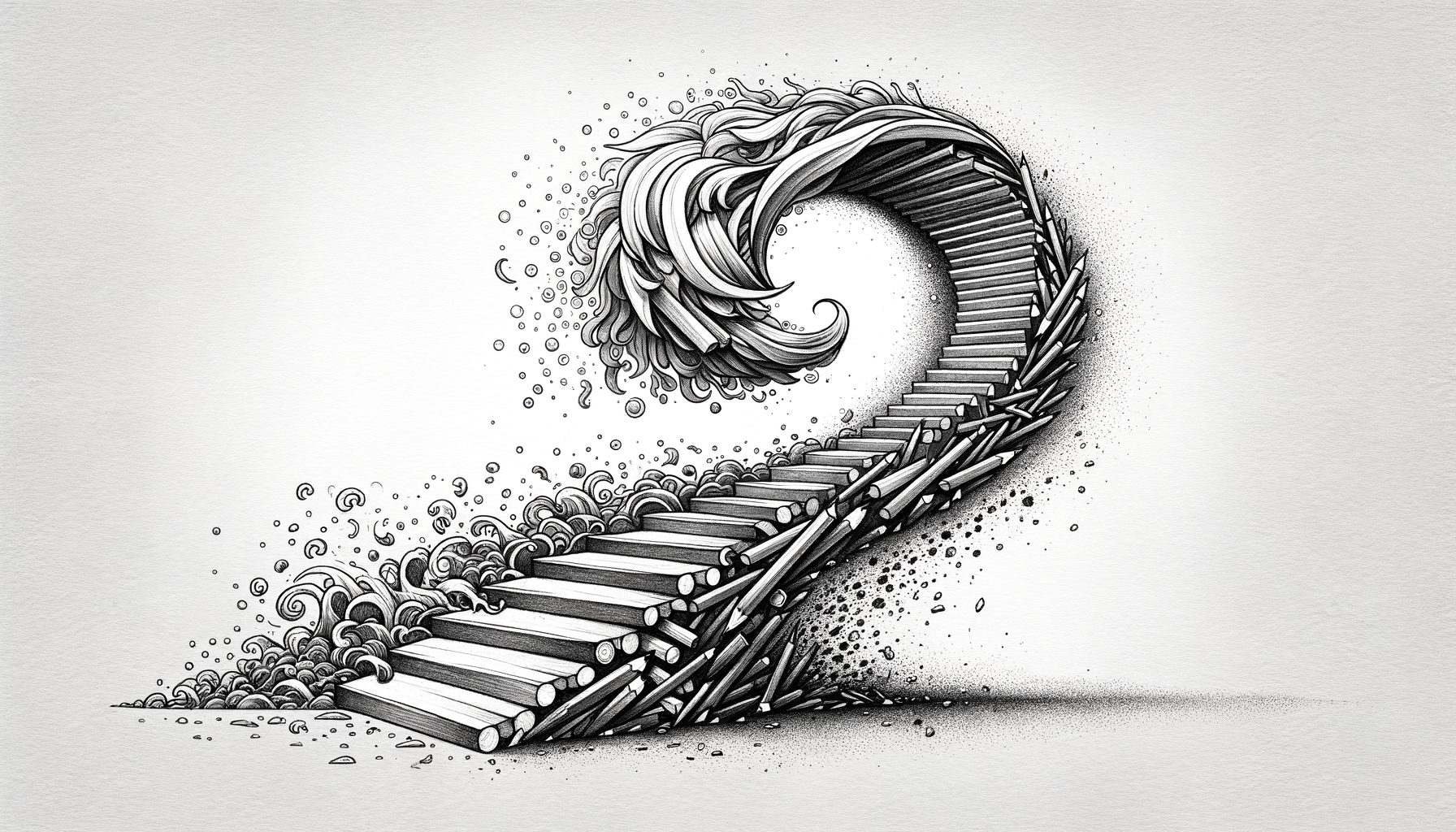Have you ever felt like you’re fraudulently playing a role in your own life, secretly waiting for someone to barge in and yell, “Alright, buddy, time to hand over the reins—you clearly don’t belong here”? Me too. Whether it’s starting a new job, launching into a serious relationship, or hosting your first holiday dinner, self-doubt can creep in, taking the wheel and refusing to use the GPS. But here’s the secret: everyone feels this way at some point. And if you're willing to hang on through the discomfort, the journey from impostor to expert isn’t just possible—it’s inevitable.
Impostor Syndrome: A Universal Shoulder Devil
For me, the script started in graduate school. I went from roaming the Rockies on horseback to presenting papers on literary symbolism to an intimidating room full of people who actually owned tweed jackets. Every time I hit “submit” on an essay, I braced myself for the professor to send it back with a simple, devastating postscript: “Sorry, Gray, there’s been some mistake—we were aiming for someone smarter.”
It didn’t stop there. My first teaching gig came with the same nagging question: Why on earth would these students listen to me? Picture me on my first day, trying to look authoritative but feeling like I’d been handed the wrong toolbox. If my life had a soundtrack, it would’ve been a Seinfeld laugh track on repeat as I stumbled through explaining Emily Dickinson.
Here’s the kicker: much of the self-doubt we carry into new roles is rooted in fear—fear of being “found out,” fear of falling short, fear of not living up to some imagined standard. But here’s what I’ve learned trudging through this mountain pass: the shift from impostor to expert begins when you stop expecting perfection and start expecting growth.
The Accidental Wisdom of Horseback Riding
Growing up in Colorado, my parents ran a small outfitter business that catered to tourists desperate for the perfect Instagram-worthy mountain ride. At 12, I was entrusted with leading my first group out for a half-hour trail ride. The problem? I’d convinced myself I wasn’t “trail guide material.” Sure, I could tell you the difference between lodgepole pine and blue spruce (thank you, 7th-grade science fair), but expertise? That felt out of reach.
Of course, once we set out, I realized something: the tourists weren’t expecting John Wayne reincarnated; they just wanted a safe ride and a decent story about the gold miners who once passed through the area. That day taught me something I’ve carried into almost every corner of life—the people relying on you don’t necessarily expect you to have all the answers. What they need most is sincerity and a willingness to show up.
When you lose the expectation of flawless execution, you make room for curiosity—and nothing earns you expertise faster than curiosity.
Roadblocks on the Path to Competence
There’s no magic shortcut to confidence. Even with practice, there were plenty of moments I felt completely off track—whether it was botching a historical reference on a guided tour or fumbling an answer to a student’s question in class. Impostor syndrome seems to thrive on these moments, whispering, “See? I told you you weren’t cut out for this.”
But eventually, I learned to expect the mistakes rather than dread them. Here are a few truths I’ve picked up along the way:
-
Everyone’s Faking It.
Any seasoned cook will tell you their early soufflés were more deflated balloon than showstopper. Just because someone makes expertise look easy doesn’t mean the road there wasn’t full of mishaps. (And, hey, mistakes make for the best stories. Ask me about the time a horse eating too many wild raspberries derailed one of my tours.) -
Impostor Syndrome Is a Reverse Compliment.
Think about it: If you feel self-doubt, it’s often because you care deeply about what you’re doing. That passion means you’re invested—and investment is the first, and most critical, step toward mastery. -
The First Draft Is Supposed to Suck.
Writing historical fiction has taught me that the path to something great almost always starts with something mediocre—or downright miserable. The same applies to life. Whether it’s your hiking route or your conversation skills in a new relationship, let yourself begin somewhere, then refine.
From Greenhorn to Guide
If you’re feeling stuck in the messy middle of learning something new, take it from someone who’s been handling horses (and feelings of inadequacy) for a long time: It gets easier. Here are a few practical tools to help move the needle from uncertainty to confidence:
-
Don’t Compare Your Beginner to Someone Else’s Expert.
My dad, an old cowboy to his bones, always said, “You can’t ride someone else’s horse through your journey.” It’s poetic—and also annoyingly true. Whether it’s your career or your romantic life, it’s tempting to measure yourself against someone who’s been at this longer than you have. Resist. Your path is yours. -
Log the Small Wins.
I used to keep mental tabs of every time I “survived” a teaching moment, like clarifying a convoluted question or giving feedback a student used (voluntarily!). Over time, those tiny sparks light a fire, building your narrative of success. -
Treat “I Don’t Know” as an Invitation.
Here’s a fun fact: ranchers aren’t born knowing how to lasso a steer—it takes hours of practice and a fair amount of trial and error. The same is true for expertise in any field. Asking questions—and the hunger to learn from others—is a gateway to growth, not a flaw. -
Fake Confidence for Five Minutes.
Back when I was guiding trail rides, I’d practice a trick: if I could channel five minutes of fake confidence at the start, it would carry me through the whole ride. Crack a joke here, tell a story there—before I knew it, I wasn’t faking anymore.
The Big Takeaway
Over time, here’s what you’ll notice: the very thing you once felt unequipped for—whether it’s adjusting to a new role at work or standing by a partner through something tough—becomes second nature. That’s not to say you stop growing (the growth part? That’s lifelong). But you do get to rewrite your inner monologue, replacing “I don’t belong here” with, “Let’s see where this takes me.”
So, if you’re that person who feels just left-of-center in whatever new challenge you’re facing, take heart. Even the surest, most confident expert you’ve ever envied started somewhere—probably face-first in the dirt. Like a good hike on the switchbacks of Telluride, the climb feels steep at first. Soon enough, though, the views remind you why you started. Keep going—you’re closer than you think.




















